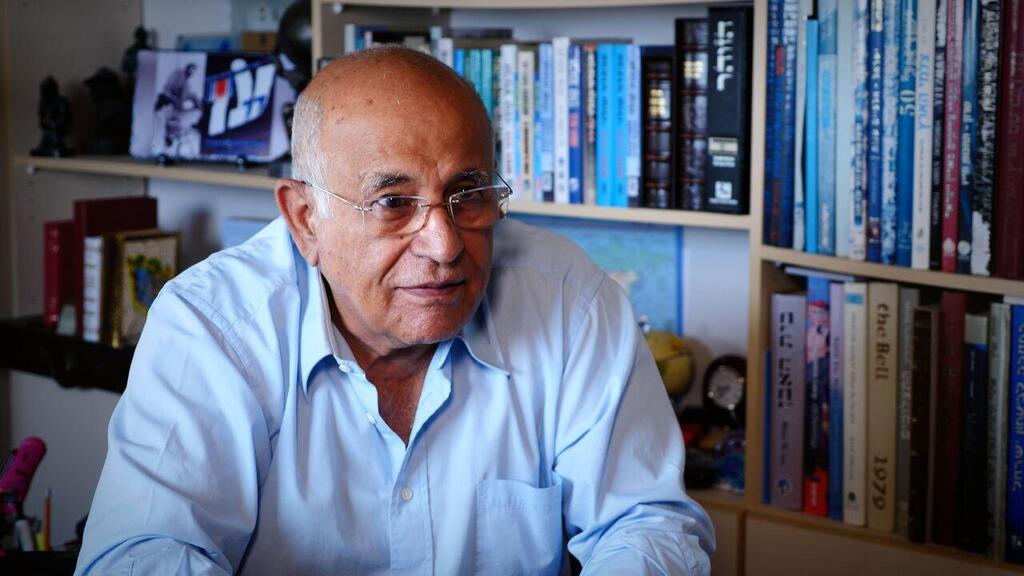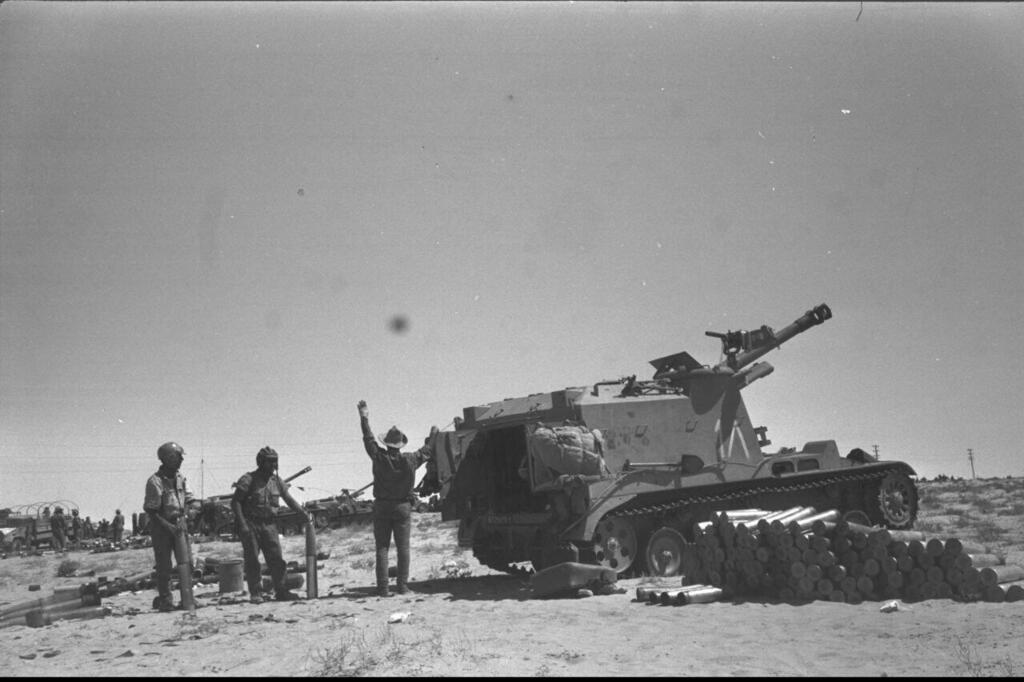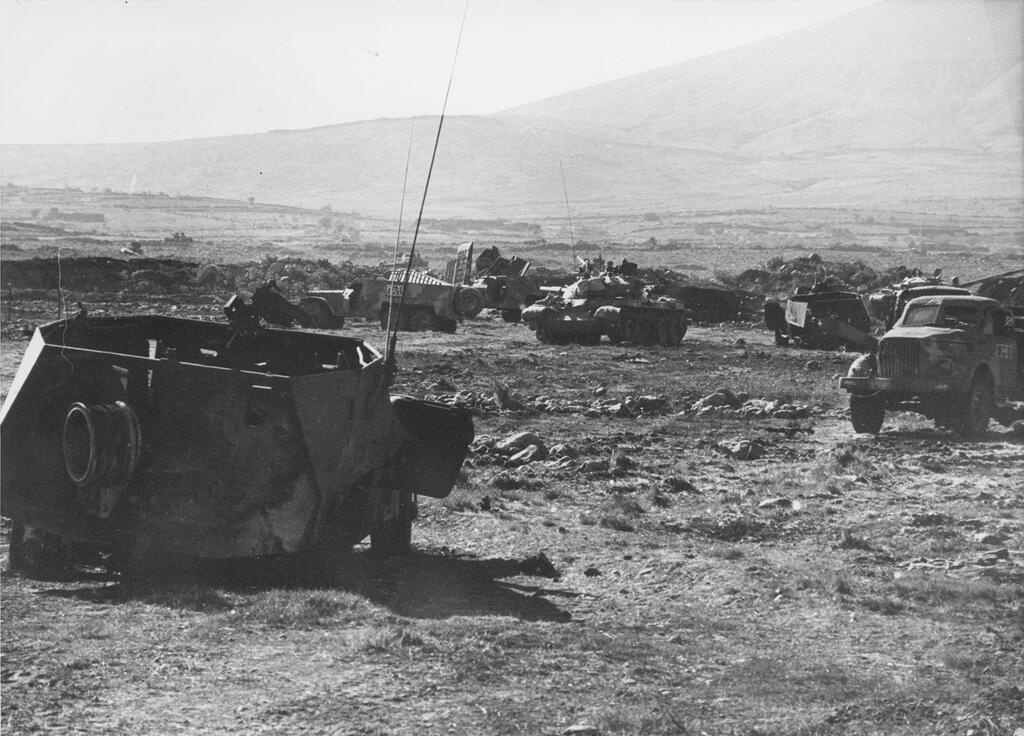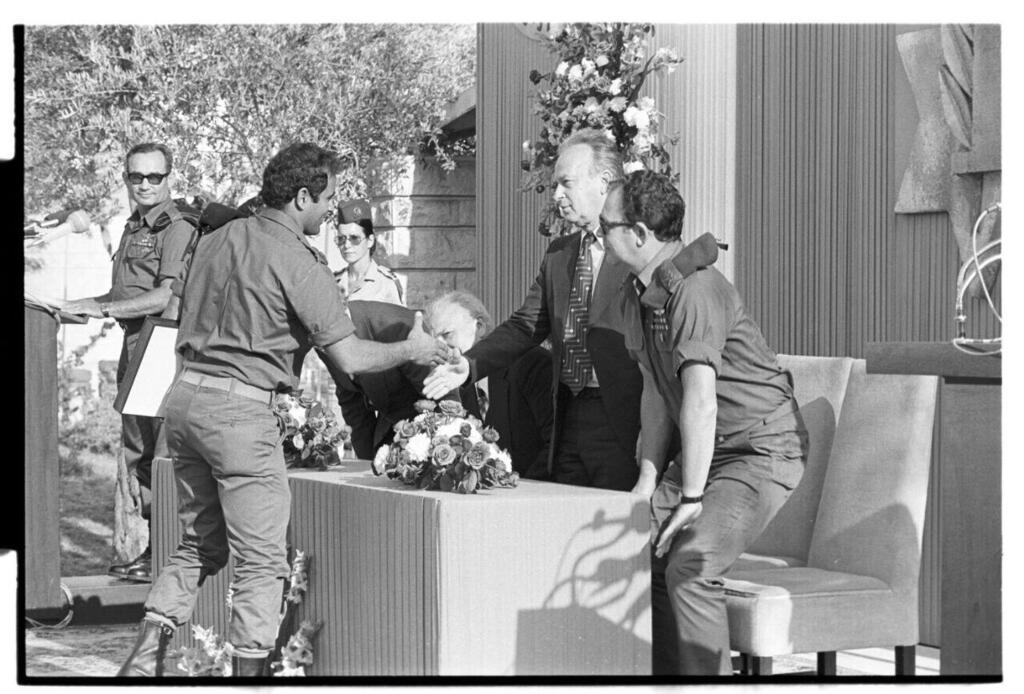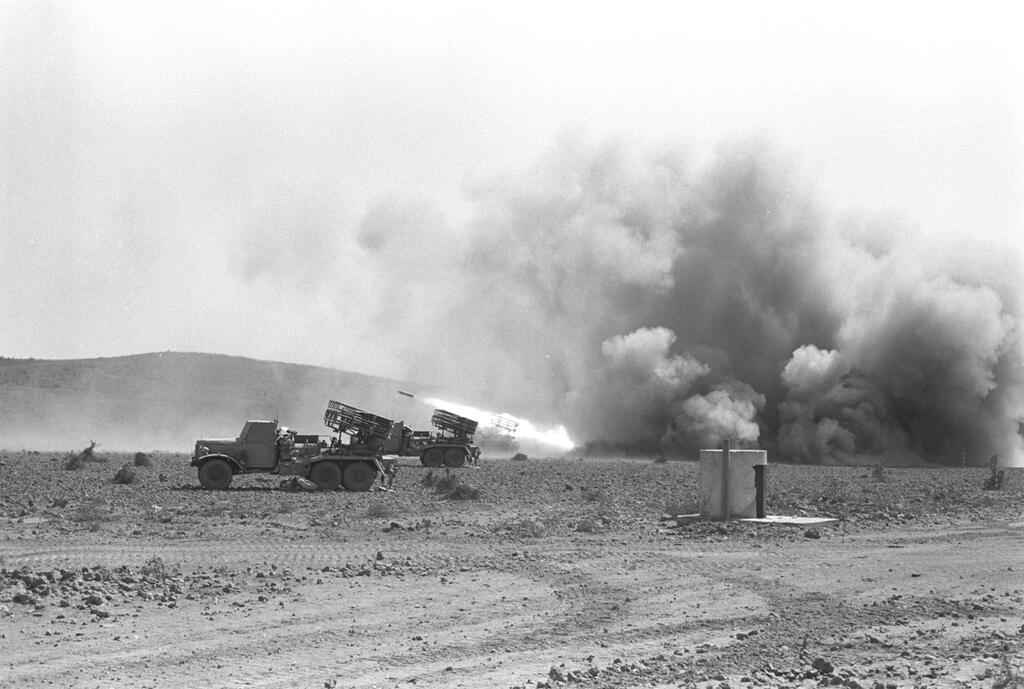During the Six-Day War, he fought in the intense battles of the Sinai Peninsula against the Egyptian army, was seriously wounded and received the Medal of Distinguished Service. Six years later, Brigadier General (Res.) Avigdor Kahalani participated in the bloody Valley of Tears Battle, battles that led to his receiving the Medal of Valor. Since then, he has been trying to pass on the feelings and lessons he learned, hoping that we have not lost our courage and vision. This is his story of heroism.
Read more:
Avigdor Kahalani's small and cramped office in Tel Aviv is filled with pictures, books and certificates. It's like a museum of Israel's war history and the numerous achievements of someone who is known in many households across the country as an "Israeli hero."
When trying to understand how this modest young man from Ness Ziona, who was expelled from officers' course due to a lack of leadership, became one of the most revered warriors, Kahalani goes back to his childhood.
"My mother always told me, 'One day you will be a soldier and protect the country.' That's how I knew that one day I would have to prove myself. Every day I have to prove myself. I don't rely on past accomplishments," he says with a smile.
When we try to talk to him about the wars and battles that led to his accolades, he emphasizes unequivocally, "To me, the Yom Kippur War is a direct continuation of the Six-Day War. You can't separate these two wars."
"The image that stands out to me from the Six-Day War is me in the first tank crossing the border," Kahalani recalls. On the first day of the war, he led the tank unit that he commanded toward the strategic targets of Khan Yunis, Rafah and El Arish, which were under Egyptian control.
"The first tank was hit, I jumped to the second tank—and it was also hit. I jumped to the third tank and led all the forces of the 7th Brigade and the 79th Battalion," he recounts. "We stormed the Egyptians, and at the end of the day, I was seriously wounded. I underwent 12 plastic surgeries, and my parents and wife were told that the chances of my survival were slim." For his bravery in that battle, he was awarded the Medal of Distinguished Service.
In an interview with Ynetnews’ sister publication Yedioth Ahronoth, he elaborated on the human toll of the war. "I was the most severely injured soldier from the Six-Day War they managed to save. Sixty percent burns, third-degree. They took skin grafts from my legs and hands and transplanted it to my back, from the neck down, but I had never experienced such pain in my life."
After a lengthy rehabilitation, Kahalani fought to return to the army and serve in the Armored Corps. "I think my decision to return to tanks after the injury is a decision that reflects bravery. To go back to the iron box where I was burned is a half-mad decision."
"Immediately, I took the tanks and led them. At first, I drove alone, and you see all those around you getting hit, killed, engulfed in flames. You have to summon all your inner strength not to retreat, not to run away, and to continue encouraging the men to take their positions and fire"
Six years after his injury, he commanded the OZ (Hebrew acronym for courage) 77th Armored Battalion and participated in one of the major battles of the Yom Kippur War.
'Do I see cowards here?'
Ten days before the outbreak of the war, the IDF moved the OZ 77th Battalion, which was usually stationed in the Sinai region, to the Valley of Tears area in the Golan Heights. "We were supposed to block the Syrian tanks there," Kahalani says.
When the war broke out, they found themselves on the front lines. "We fought for four days in a defensive war that was madness. On the fourth day of the war, I realized that if we didn't stop them, they would burn us and advance toward the Galilee. My gut feeling was that the outcome of the battle depended on my behavior."
As he recalls those days, the smile disappears, and his voice begins to tremble. "In fact, we were already retreating. Yanush [Avigdor Ben-Gal, the commander of the division] gave the order to retreat. I was already in the second line, four kilometers behind the Valley of Tears, and then suddenly he made the decision to launch a sortie."
"I saw about 160 enemy tanks rolling down the Valley of Tears, and my eyes bulged in shock. You suddenly see the balance of power, and with such a balance of power, it was not reasonable at all to think that we could stand against them," he recounted.
"Immediately, I took the tanks and led them. At first, I drove alone, and you see all those around you getting hit, killed, engulfed in flames. You have to summon all your inner strength not to retreat, not to run away, and to continue encouraging the men to take their positions and fire."
"Then I posed the question, 'What happened to us? We're Israelis, Jews, we're better than them.' In the end, I added a line that almost got me killed, 'Do I see cowards here? Whoever wants to, can join me'."
The battle that unfolded there was seared into the Israeli consciousness as one of the turning points on the Syrian front of the war. “I took the remaining tanks and climbed up the hill just before the mass of Syrian tanks reached it and rushed toward the Galilee. There was a challenging leadership problem there, but leadership sometimes solves it by personal example."
The recorded radio transmissions from the beginning of the battle still send shivers down Kahalani’s spine, even almost fifty years later. "I don't understand what's happening to us. We are stronger than them. I'm going to my position, whoever wants to come with me can join. Move. Over," Kahalani's voice is heard on the radio.
While the enemy had a clear upper hand and the battle seemed like a suicide mission, Kahalani managed to convince the fighters to join him. "It wasn't easy to persuade them. I told them, 'Look at the Syrians, see what good fighters they are, they're teaching us a lesson.' Then I posed the question, 'What happened to us? We're Israelis, Jews, we're better than them.' In the end, I added a line that almost got me killed, 'Do I see cowards here? Whoever wants to, can join me.'"
"I charged forward all the time, fought like a symbol. When we reached the top, the feeling was that we could do it," he recalls with teary eyes. "My tank fired like crazy—boom, boom, boom, boom —just like ducks in a shooting gallery. I think my tank destroyed four tanks, and then we destroyed another ten, and when we reached the positions, we destroyed twenty-five more, and their attack was halted."
Where do you find the strength to storm forward?
"The obligation to prove oneself is constant. When you are a commander, you know that you need to lead, that you are the big brother of this entire group around you. You know that all eyes are on your back, so you don't want to let them down. Automatically, you feel the need to be the first. There's a sense of responsibility, that I will be at the forefront and make the decisions. I didn't feel comfortable staying behind and sending my fighters forward."
Kahalani returned from the Yom Kippur War not only adorned with victories and the Medal of Valor but also with a heavy personal price—his younger brother and brother-in-law were killed in the war.
"My brother's death was a shock to me. To this day, I can hardly talk about him. I saw my family falling apart, and I was in a dilemma. What should I do? Should I go back home or stay with my soldiers who stormed into the inferno? I was torn inside and decided to serve a little behind, near the family, to try to rebuild it. It wasn't an easy moment."
‘When shame no longer hurts, there won't be a nation’
Three years after that famous battle, Kahalani, now the 7th Brigade commander, approached one of the tank commanders who fought alongside him in the Valley of Tears and asked for an apology.
"'Do you remember you gave us orders to move forward, and no one budged?' I replied, ‘clearly.’ He said, 'I stood 200 meters behind you.' I asked him, 'Why didn't you advance?' Then he replied, 'I couldn't say a word. My crew and I hesitated, and suddenly, when I listen to you, you call me a coward. I wanted to kill you.'"
So why did he charge forward?
"Because shame hurts him more than death. Shame is a value in our State of Israel. When shame no longer hurts, there won't be a nation."
This year has shaken the country, and also Kahalani, with the threats from reserve soldiers not to report for duty if the judicial overhaul passes. "A reservist soldier is a soldier, and a reservist pilot is a pilot. The political dispute cannot enter the army, and we need to cut it off immediately. The country is one, and its test is not what a politician says on the radio but what those who pull the trigger will do."
Are we prepared for the next war?
"Are our weapons ready for the next war? From what I understand and know, yes. Will the leaders, the decision-makers, have the ability, vision and courage at that critical moment? That I can't tell you, and there I hope we won't fail."


